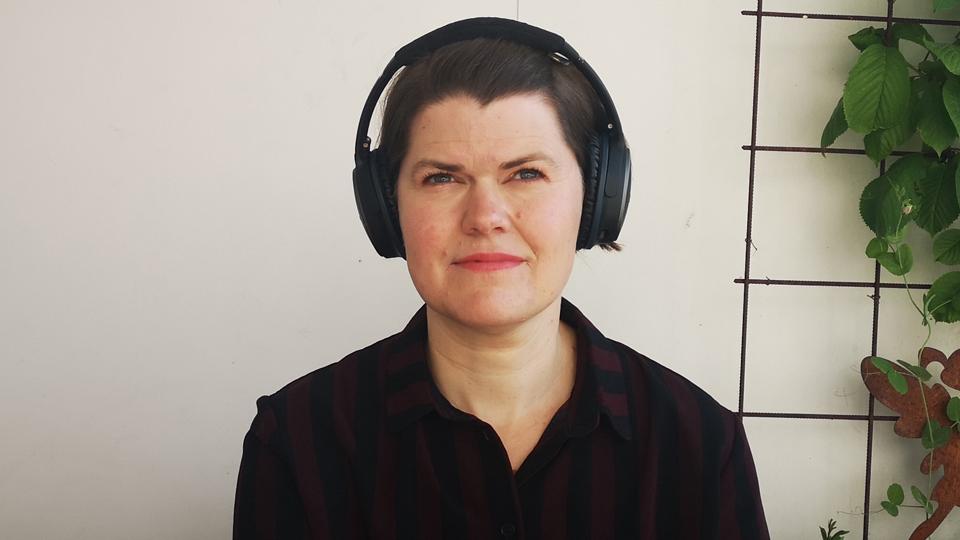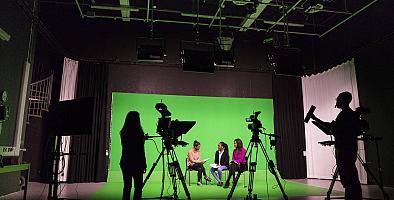Course information
Department
Length
1 year full-time
Course overview
Sound is the most dynamic part of the media industry right now and this long-standing MA in Audio, Radio and Podcasting will give you the theoretical knowledge and practical experience to navigate it and excel in it. We value what you have already achieved. Creativity in the audio medium is a uniquely personal experience and your existing knowledge and skills mean you'll be able to add diversity to the area of the industry you intend to join.
Why study MA Audio, Radio and Podcasting
Audio is a medium that has the potential to be transformative, to further the human experience. It’s a medium that creates a sense of intimacy, while continually generating questions. This is a degree that will empower you to create something permanent, something with a life beyond your own, something significant.
You'll be working in The Department of Media, Communications and Cultural Studies (MCCS). The department has been ranked 2nd in the UK for 'world-leading or internationally excellent' research (Research Excellence Framework, 2021) and 16th in the world (3rd in the UK) in the 2024 QS World Rankings for communication and media studies.
Students regularly win major and prestigious audio awards, including:
- Charles Parker Prize (Gold in 2013,2019 and 2023)
- Rising Star Award 2019 (European Broadcast Union)
- Best Radio Feature at the BJTC (British Journalism Training Council in 2016, 2020 and 2021) and Best Podcast (2022)
Goldsmiths graduates regularly win commissions for speech-based programmes with leading independent producers and for the BBC.
With such a well-established and successful degree, our alumni hold important positions throughout the audio industry and include leading journalists, sound designers and independent producers. Alumni include Hannah Walker-Brown (a multi-award-winning audio documentary maker, writer and the Creative Director for Broccoli Productions, a London-based podcast production company) Hunter Charlton and Ben Tulloh (directors of Burning Bright productions), Tayo Papoola (music producer, DJ and podcaster), Jason Phipps (former commissioning Editor of BBC Sounds and now Head of Content & Development at Chalk & Blade, Mark Burman (BBC features producer) , Hanna Dean (award-winning freelance features producer), Arlie Adlington (freelance audio producer, sound designer and mix engineer) Wei Dong Lin, studio director (BBC) and podcast sound designer (The Economist)) and many more.
We'll excite your curiosity about the modern audio landscape
The MA poses questions about the influence of audio as a medium and the power it has to stir emotions, evoke feelings, and conjure vivid mental images. We look at the ways in which recording technologies can preserve and hold on to an aspect of our existence – be that a cultural exchange or an artistic communication – and how we can inspire future generations with the work we create.
How you'll do this
- The degree blends theory and practice. You'll spend the majority of your time actually producing content. You'll study contemporary radio and the audio revolution of podcasting. We look at the history of the audio medium; we think it is vital to understand how the industry has got to where it is now, and it is a fascinating story!
- You'll work in professional-standard digital studios and post-production suites with a dedicated newsroom. An optional bonus: Goldsmiths also has its own student radio station broadcasting online.
- Journalism skills are vital to news and documentary production and this is one area where you'll spend a lot of time gathering original stories and crafting news programmes. Online multimedia publishing and social media production form part of the skills mix.
- Our media law module is one of the most intensive in the UK. You'll learn how to report in a legal and safe manner, including ethical treatment of topics and contributors. Law courts are a constant source of fascinating news stories and we include reporting visits to some of London's biggest courtrooms.
Deciding to join our MA Audio, Radio and Podcasting degree
- We don’t get in the way of your talent; we encourage and support it. We give you the space and time and facilities to explore different strands of thought and ways of expression.
- We adopt a reflective, humanitarian approach to storytelling. In order to develop creative imagination, we need to embrace diversity and understand all kinds of belief systems. Our students go and spend time within communities, continue questioning, continue listening and continue learning well after their graduation and throughout their careers.
- You can develop your own individual ideas about the sonic arts. We encourage you to explore everything from investigative journalism to interactive soundscapes and cutting-edge audio drama.
- This MA gives you skills which employers want. The ability to think critically and act confidently, ask the right questions and apply research rigour are valuable in adjacent industries and freelance work.
- We assemble some of the best audio producers (either directly as lecturers, or as visiting industry experts) who will share their experience with you, motivate you, and offer you feedback to help each piece of work be better than the last.
- This degree is part of our School of Journalism. Find out more about what we do and other degrees we teach.
Promise of Performance
This minimum 70% media practice one-year programme aims to provide teaching and learning to a minimum professional standard in creative audio writing and production, radio and multimedia journalism, audio documentary and drama, and live radio broadcasting.
This is combined with advanced teaching and assessment in media law, regulation and ethics in the international context, use of voice in broadcasting, sound newsgathering, production and publication online as well as broadcasting, journalistic research and preparation of commissioning proposals for broadcasters and audio publishers.
You'll be expected to meet professional and industry standards through your attendance in this programme. This includes obtaining a minimum of 15 days of professional experience in a journalism production environment. Through attendance on this programme, you'll be expected to demonstrate a professional understanding of public affairs, interpretation of media statistics, applying maths in journalism, and an effective working knowledge of current affairs. You will also be expected to meet all set deadlines for the submission of work.
Contact the department
If you have specific questions about the degree, contact Richard Shannon or Robert Freeman.






